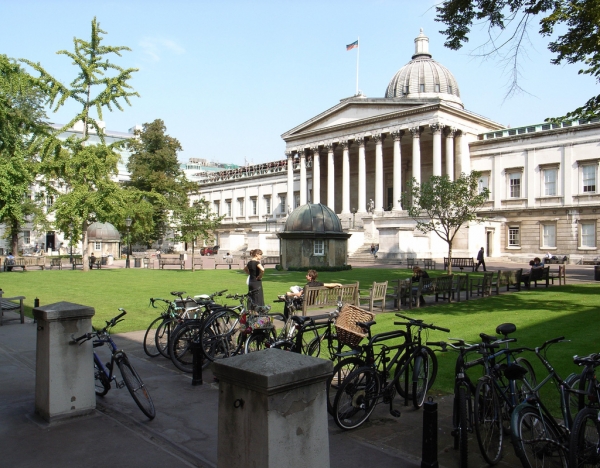Nu pierdeți cele mai bune locuri de muncă!
Abonează-te și săptămânal iți vom trimite un email cu ultimele locuri de muncă disponibile. Introdu adresa ta de email mai jos
So you want to study in the United Kingdom? Congratulations – you’ve chosen wisely! With its prestigious, centuries-old prep schools and some of the world’s most highly-ranked universities, the United Kingdom has long been a center for foreign students of all ages. While many schools and universities actively seek and encourage enrollment by students from other countries, the process isn’t quite as simple as paying tuition and buying a plane ticket. Like most countries, the United Kingdom has laws and regulations about different types of student visas, and it’s important to know what kind of visa you need – and how to apply – before packing your bags and deciding what the best rucksack vs. backpack vs. knapsack to use. If you’re considering studying abroad in the UK, here’s what you need to know about the different kinds of visas and what they mean for foreign students.
The Basics on how to get student visa in UK
The type of visa you'll need will vary depending on multiple factors, but the most important ones are your age, your country of residence and how long you’re planning to stay.
For UK immigration purposes, countries fall into three categories. The first category includes other countries in the European Union and European Economic Area (EEA), as well as Switzerland, which is not part of either the EU or the EEA. People from these countries can freely enter the UK to study without a visa.
The second group is non-visa nationals. Non-visa nationals are allowed to enter the UK without a visa if they intend to study for less than six months, but have to apply for a specific visa if they plan to stay for longer than six months or to work while studying. Residents of these countries can get a basic visitor or student visitor visa upon arrival at the airport in the UK and therefore do not need to apply at the consulate in their home countries prior to arrival. Non-visa national countries include all of North and Central America (including most of the Caribbean countries), as well as Australia, Argentina, Chile, Israel, Hong Kong, Japan, Malaysia, New Zealand, Paraguay, Singapore and Uruguay.
The third group is visa nationals, and includes all other countries that do not fall into one of the two prior categories (here’s an official list). Citizens of these countries planning to work or study in the UK must apply for a visa prior to arrival, regardless of how long they intend to stay.
UK Visas Types
There are three different types of visas available for students planning to study in the UK.
UK Student Visitor Visa
The basic Student Visitor visa is for non-EU/EEA/Swiss nationals over the age of 18 planning to study in the UK for six months or less. Non-visa nationals can request this visa upon arrival in England; visa nationals are required to get it at the British embassy or consulate in their home country before arriving. Citizens belonging to either group are required to provide proof of their admission and enrollment in an accredited institute of education, and financial information demonstrating an ability to support themselves and pay all expenses (rent, tuition, etc.) while in country.
There is also an extended variation of this visa, which allows students to stay in the country for 11 months if they are enrolled in an English language learning course. Students must provide proof of their enrollment in such a course to get approved for the extended visa.
This visa…
Allows: Study in a short-term (semester) course or extended English language course.
Prohibits: Working; studying at a public school or university; receiving public funds; extending the visa once in country.
Cost: £83 for the standard 6-month visa; £150 for the 11-month extended visa.
Tier 4 (General) Student Visa
This is the most common visa for foreign students studying in the UK, as it permits greater flexibility and more time in the country, with a possibility for extending. Foreign students over the age of 16 from non-EU/EEA countries or Switzerland must apply for this student visa if they plan to stay for longer than six months and/or intend to work during their time in the UK. Like the Student Visitor visa, this visa requires applicants to show acceptance to a school or educational program as well as demonstrate the ability to support themselves financially and pay for their studies. In addition, students from non-English-countries applying for this visa must demonstrate at least a B1/B2 level (depending on their intended level of study) in reading, writing, listening and speaking in English.
Tier 4 Student visas can be extended past their original term if students decide to continue their studies for longer than originally planned.
This visa…
Allows: Study in most schools, universities or other accredited educational institutions; specific employment, depending on the nature of the course of study and sponsoring organization; application outside or within the UK; extension.
Prohibits: Receiving public funds; working as a professional athlete.
Cost: £310 for original application from outside the UK; £422 for extending by mail; £822 for extending or changing in person.
Tier 4 (Child) Student Visa
This visa is fairly similar to the regular Tier 4 Student visa, but applies to students under the age of 17. The Child Student visa has all of the same requirements as the General Student visa, but also requires the additional consent of a parent or guardian. The length of this visa depends on the applicant’s age and how long they intend to study in the UK. Students under age 16 can get a visa for the full length of a course up to six years, plus four extra months after the course ends. Students ages 16 and 17 may apply for the length of a course up to three years, plus an additional four months. Like the general student visa, this visa can be extended once in country, but older students may have to switch to the general visa if they plan to stay past their 18th birthday. This visa is intended for students enrolled at private schools or those paying tuition at public universities; it does not allow students to enter public schools.
Students over age 16 (the legal working age in Britain) with this visa may also work, with some restrictions. During school semesters, students are only permitted to work part-time (up to 10 hours/week), with the option to work full-time during vacations. Students may also participate in an internship or work placement as part of their coursework, as long as it doesn’t take up more than half of overall course time.
This visa…
Allows: Study in most schools, universities or other accredited educational institutions with paid tuition; work for students over age 16, within certain restrictions; application outside or within the UK; extension.
Prohibits: Enrollment in public schools; receiving public funds; working a full-time job; working as a professional athlete or entertainer.
Cost: £310 for original application from outside the UK; £422 for extending by mail; £822 for extending or changing in person.
Visa processing times will vary depending on the type of visa you’re requesting and the country where you apply, but the average processing time for most visas is 10-15 business days, with the majority done within three weeks and a few taking up to 30 days. Keeping this timeline in mind, it’s a good idea to begin your visa application process, if necessary, a month or two in advance, to ensure you have enough time to get your visa without feeling rushed or anxious about time. The British government recommends applying about two months in advance, as applications are allowed no earlier than three months before the departure date.
To figure out exactly what kind of visa you need and what materials may be required, as well as to see information for your home country, take a look at the visa section of the British immigration web site.
Sign in to publish a comment


Be the first to comment on this post.